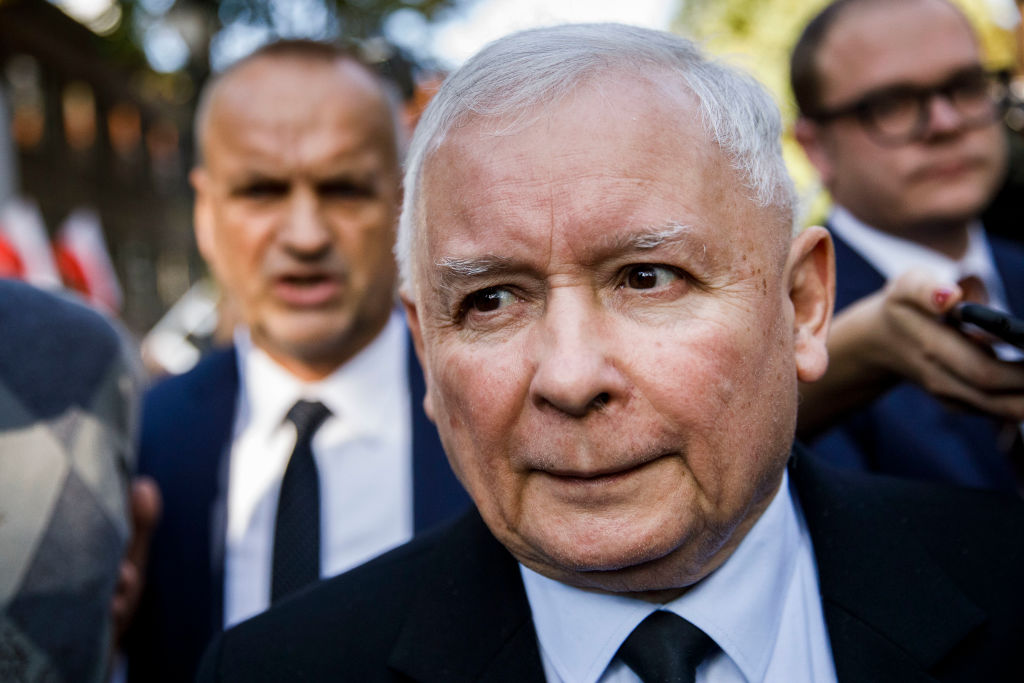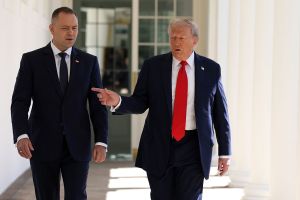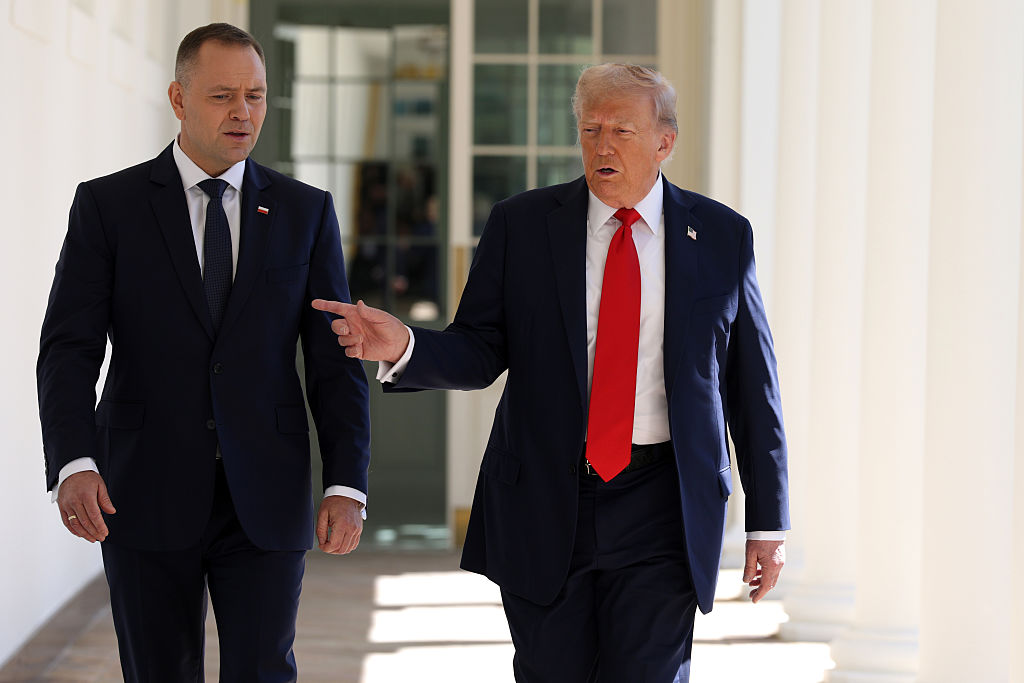Kazik Staszewski, a grizzled 57-year-old, does not look like the kind of singer who would top the charts. Nor does his recent accordion-heavy song ‘Your Pain Is Better Than Mine’ sound like the kind of song that sells. Nonetheless, the song took Poland by storm, topping the Radio Three charts and racking up millions of views on YouTube. Why? The lyrics launched a stinging attack on Jarosław Kaczyński, the most polarizing man in Polish politics — and another high-profile figure to be accused, like Dominic Cummings in Britain, of breaching lockdown rules.
Kaczyński leads Law and Justice, the largest party in the Polish parliament, and serves as its kingmaker and ideological backbone. The party was founded by Kaczyński and his twin brother, Lech, with whom he went from being angelic child actors in the film The Two Who Stole the Moon to being the most formidable tag team in Polish politics. Lech was the president of Poland from 2005 to 2010 before his tragic death in the Smolensk air disaster. Jarosław himself was the prime minister of Poland from 2006 to 2007, and suffered a narrow loss in the 2010 presidential election, after which he adopted to take a backseat role.
Even so, Kaczyński is never far from the headlines. In April, he visited the Smolensk memorial in Warsaw, leading a small but by no means socially distanced group at a time when cemeteries were closed. Some argue that this was an exceptional case. It was the 10th anniversary of the disaster, and Kaczynski was not just honoring his brother but the other 95 victims of the crash. Patryk Jaki MEP, for example, said, ‘It was an element of state ceremonies, and state ceremonies are excluded from the regulation.’
Others, though, were affronted. Barbara Nowacka of the Law and Justice rival Civic Platform said that she could not visit her mother’s grave, even though she had died in the crash. This alleged injustice is what drove Kazik to write his song, and the anger it expressed was magnified when it disappeared from the Radio Three website, prompting a wave of resignations at the station. The disappearance of the song has not been shown to have resulted from an order from Kaczyński or Law and Justice, and their culture minister has condemned the decision, but resentment endures.
Mateusz Morawiecki, Poland’s soft-spoken but articulate Prime Minister, issued a statement on Facebook where he defended the Smolensk ceremony as an expression of ‘common attachment’, and decried people who whip up ‘substitute themes’ as people lose their lives and businesses. Unfortunately for the Prime Minister, he soon found himself facing similar problems as Kaczyński when a photoshoot intended to encourage Poles to visit restaurants after the lifting of shutdown orders showed him sitting less than 1.5 meters apart from people who he was not living with, in defiance of his own government’s regulations. Morawiecki admitted that he had not been properly informed about the rules, raising questions about how anyone else could be expected to follow them.
Still, as regrettable as these incidents were, there was something to what the Prime Minister said about ‘substitute themes’. Across Europe, a grim sport has been made out of catching experts and authorities not following their own rules. Neil Ferguson was roundly mocked for hosting his married lover, before Dominic Cummings was targeted for his long drives. Leo Varadkar has been accused of sunbathing too close to people. Austria’s Alexander Van Der Bellen was criticized for staying in a restaurant and breaking curfew rules. Germany’s Christian Lindner was caught hugging a friend.
All of these events could have at least been handled differently. Yet is there a danger that in such strange times we are losing sight of the questions that have consequence? How to shield the vulnerable, what gatherings to allow, and how to make testing more accessible and efficient. Social distancing has provided a golden opportunity for those of us who are ill-equipped to grapple with these questions to focus on largely symbolic phenomena. (How to shield care homes? I don’t know. Was Leo Varadkar lying at a sufficient distance from his friends? It doesn’t look it to me!)
How relevant or otherwise these scandals will be to history, though, depends entirely on results. If deaths soar in Poland, for example, or the economy collapses — as we naturally hope and pray that they will not — then people will look back on these events as being symbolic of governmental failure. If the nations opens up again without the virus running rampant, on the other hand, then these debates will fade out as forgettably as background noise.
This article was originally published onThe Spectator’s UK website.

























